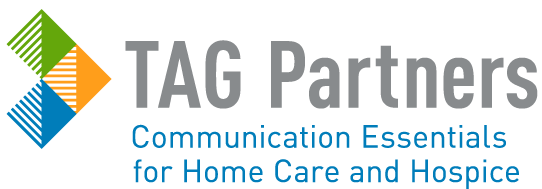April is national Occupational Therapy month and the perfect time to promote the occupational therapy services your home health agency provides.
Many patients recovering from surgery or struggling with chronic illnesses have difficulty carrying out the activities of daily living (ADLs). Home health care provides occupational and physical therapists who help patients better manage their daily routines. Occupational therapists evaluate a patient’s home environment along with their physical capabilities to identify activities that might be difficult for them to accomplish. The therapists then create a program instructing patients in performing these daily tasks safely, which is especially useful for seniors who need to minimize fall risk.
Occupational therapists aren’t just concerned with functionality, they also provide emotional support. Therapists encourage patients to be kind to themselves and to accept that managing ADLs differently is okay. They teach energy conservation techniques to minimize joint stress, pain, and fatigue. Practicing energy conservation reduces the frustration of running out of steam by balancing rest and activity.
Energy Conservation tips:
Plan ahead by scheduling difficult tasks for when you have the most energy.
Take frequent short rest periods and lie down whenever possible.
The amount of rest you need and the amount of activity you can do will be different from day to day.
Avoid activities that cannot be stopped immediately if they become too much.
Sit to work whenever possible and rest before you feel tired.
Plan a balance of rest and activity, spreading the more draining tasks throughout the week.
Delegate responsibilities to others.
Here are ideas on how your agency can celebrate Occupational Therapist month:
Throw an OT party and invite former patients to share their success stories and take lots of photos to share on social media.
Highlight individual therapists in your social media posts. Have them share fun facts about themselves and give a short ditty about why they chose to become an occupational therapist.
Host a lunch & learn for your referral sources to point out all of the services you offer your patients and to seek feedback to improve your business.
Organize an OT get-together after work to facilitate team building and discuss the patients that have touched your heart.
Check out our online web store for materials to help promote your wellness message…


